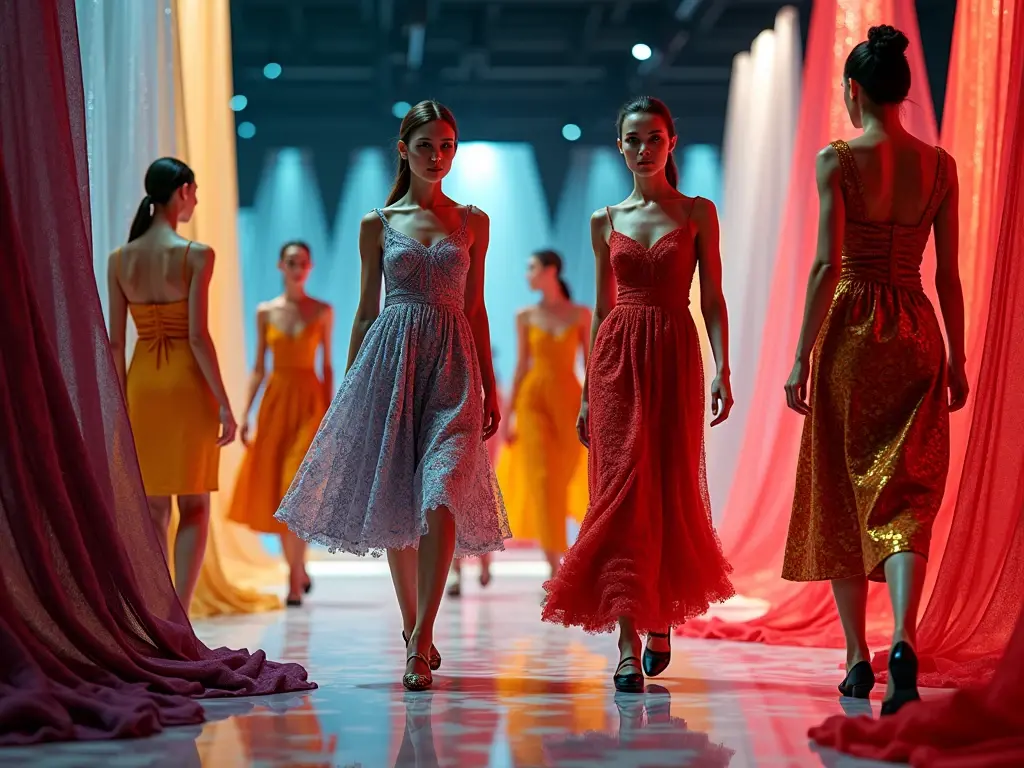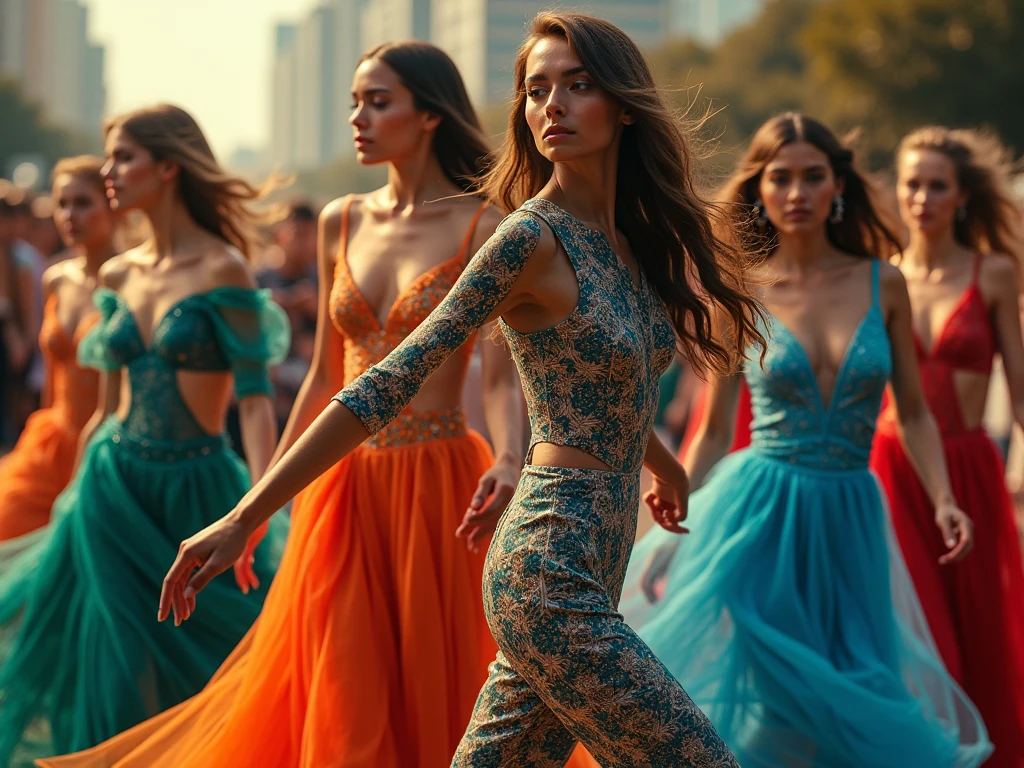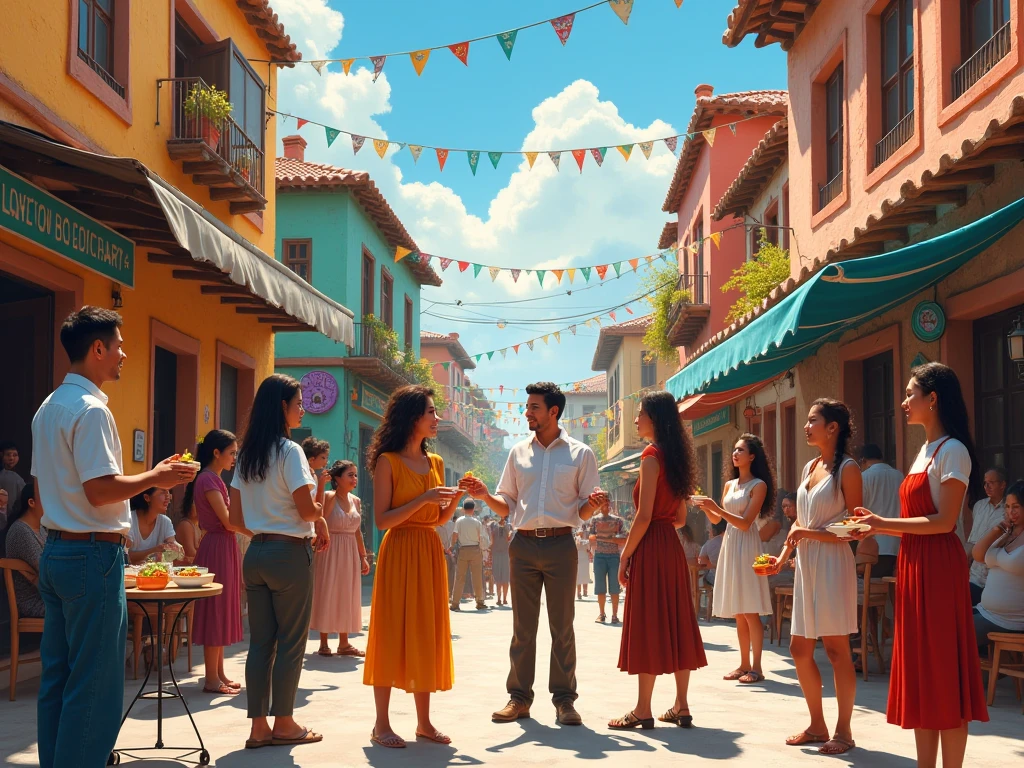Music and fashion have always been deeply intertwined, each influencing and reflecting the other in a dynamic dance of creativity and self-expression. From the flamboyant styles of the 1970s disco era to the grunge aesthetic of the 1990s, music has consistently shaped fashion trends, while fashion has provided musicians with a visual language to complement their sound. In this article, we’ll explore the historical and contemporary relationship between music and fashion, highlight iconic moments, and examine how this synergy continues to shape culture today.
The Historical Connection Between Music and Fashion
1950s: Rock ‘n’ Roll and Rebellion
The 1950s saw the rise of rock ‘n’ roll, a genre that brought with it a sense of rebellion and youthful energy. Artists like Elvis Presley and Chuck Berry popularized leather jackets, rolled-up jeans, and pompadour hairstyles. This era marked the beginning of music’s influence on fashion, as young people sought to emulate their idols.
Iconic Look: Elvis Presley’s slicked-back hair, high-collared shirts, and bold suits.
1960s: The British Invasion and Mod Style
The 1960s were defined by the British Invasion, led by bands like The Beatles and The Rolling Stones. The mod subculture emerged, characterized by tailored suits, mini skirts, and bold patterns. Fashion became a way to express individuality and break away from traditional norms.
Iconic Look: Twiggy’s mod-inspired mini dresses, graphic prints, and dramatic eyelashes.
1970s: Disco Glam and Bohemian Vibes
The 1970s brought two distinct fashion trends influenced by music: the glitz and glamour of disco and the free-spirited bohemian style. Disco music, with artists like Donna Summer and the Bee Gees, inspired sequined dresses, bell-bottoms, and platform shoes. Meanwhile, the hippie movement, fueled by folk and rock music, embraced flowing fabrics, fringe, and earthy tones.
Iconic Look: John Travolta’s white suit in Saturday Night Fever and Stevie Nicks’s bohemian stage outfits.
1980s: Bold and Eclectic
The 1980s were all about excess, and music genres like pop, rock, and hip-hop influenced bold fashion choices. Madonna’s layered jewelry, lace gloves, and fishnet stockings became iconic, while hip-hop artists like Run-D.M.C. popularized tracksuits, bucket hats, and sneakers. Rock bands like Guns N’ Roses brought leather, denim, and band tees into the mainstream.
Iconic Look: Michael Jackson’s red leather jacket from Thriller and Cyndi Lauper’s colorful, mismatched outfits.
1990s: Grunge and Hip-Hop
The 1990s saw the rise of grunge music, with bands like Nirvana and Pearl Jam influencing a laid-back, anti-fashion aesthetic. Flannel shirts, ripped jeans, and combat boots became staples. At the same time, hip-hop fashion evolved, with artists like Tupac and Notorious B.I.G. popularizing baggy jeans, oversized jackets, and Timberland boots.
Iconic Look: Kurt Cobain’s thrift-store flannel and Doc Martens.
2000s: Pop Stars and Streetwear
The 2000s were dominated by pop stars like Britney Spears, Christina Aguilera, and Justin Timberlake, who brought low-rise jeans, crop tops, and trucker hats into fashion. Hip-hop continued to influence streetwear, with brands like Rocawear and Sean John gaining popularity. The rise of music festivals also introduced boho-chic styles, such as flower crowns and fringe vests.
Iconic Look: Destiny’s Child’s matching outfits and Eminem’s signature hoodie and baseball cap.
Modern Music and Fashion Trends
1. Hip-Hop and High Fashion
Hip-hop has become a dominant force in both music and fashion. Artists like Kanye West, Pharrell Williams, and Travis Scott have collaborated with luxury brands such as Louis Vuitton, Chanel, and Dior. Streetwear brands like Supreme, Off-White, and Yeezy have blurred the lines between high fashion and casual wear.
Trend: Oversized hoodies, graphic tees, and statement sneakers.
2. K-Pop and Global Influence
K-Pop has taken the world by storm, and its influence on fashion is undeniable. Groups like BTS and BLACKPINK are known for their bold, coordinated outfits that mix streetwear, high fashion, and futuristic elements. Their style often includes vibrant colors, bold patterns, and avant-garde accessories.
Trend: Gender-neutral fashion, layered looks, and experimental hairstyles.
3. Indie and Alternative Aesthetics
Indie and alternative music scenes have inspired a laid-back, vintage-inspired fashion trend. Think thrifted clothing, band tees, mom jeans, and chunky sneakers. Artists like Billie Eilish and Clairo have popularized oversized silhouettes and a mix of grunge and Y2K influences.
Trend: Oversized blazers, graphic tees, and platform shoes.
4. Pop Divas and Glamour
Pop stars like Beyoncé, Lady Gaga, and Ariana Grande continue to push the boundaries of fashion with their glamorous and theatrical stage outfits. Sequins, metallics, and bold silhouettes are hallmarks of this trend.
Trend: Sparkly bodysuits, thigh-high boots, and dramatic makeup.
5. Festival Fashion
Music festivals like Coachella and Glastonbury have become fashion showcases, with attendees embracing boho-chic, retro, and eclectic styles. Flower crowns, fringe, and crochet are festival staples.
Trend: Bohemian dresses, cowboy boots, and layered jewelry.



How Music and Fashion Influence Each Other
1. Artists as Fashion Icons
Musicians have long been fashion icons, using their style to express their artistry and connect with fans. From David Bowie’s androgynous looks to Rihanna’s boundary-pushing outfits, artists often set trends that resonate beyond the music industry.
Example: Harry Styles’s gender-fluid fashion choices have sparked conversations about inclusivity and self-expression.
2. Collaborations Between Musicians and Designers
Collaborations between musicians and fashion designers have become increasingly common. These partnerships often result in limited-edition collections that blend music and fashion.
Example: Rihanna’s Fenty x Puma line and Beyoncé’s Ivy Park collaboration with Adidas.
3. Music Videos as Fashion Statements
Music videos are a powerful medium for showcasing fashion. Artists use them to introduce new styles and create iconic looks that fans rush to emulate.
Example: Lady Gaga’s Bad Romance video, featuring avant-garde outfits by Alexander McQueen.
4. Concerts and Tours as Fashion Runways
Concerts and tours provide musicians with a platform to experiment with fashion. Stage outfits often become defining elements of an artist’s brand.
Example: Beyoncé’s Formation tour, which featured custom designs by Balmain and Gucci.
5. Social Media and Viral Trends
Social media has amplified the connection between music and fashion. Platforms like Instagram and TikTok allow artists to share their style instantly, creating viral trends.
Example: Lil Nas X’s bold outfits and TikTok challenges that inspire fans to recreate his looks.
The Future of Music and Fashion
As music and fashion continue to evolve, their relationship will only grow stronger. Here are some trends to watch:
1. Sustainability
Both industries are embracing sustainability, with musicians and designers advocating for eco-friendly practices. Expect to see more upcycled outfits and sustainable fashion lines.
Example: Billie Eilish’s collaboration with Nike on vegan sneakers.
2. Technology and Innovation
Advancements in technology, such as augmented reality (AR) and virtual fashion, are creating new ways for music and fashion to intersect.
Example: Virtual concerts where attendees can dress their avatars in digital fashion.
3. Inclusivity and Diversity
The push for inclusivity and diversity in both music and fashion is reshaping the industry. More brands are embracing size inclusivity, gender-neutral designs, and cultural representation.
Example: Lizzo’s partnership with Fabletics to create inclusive activewear.
4. Nostalgia and Retro Revival
Nostalgia continues to influence both music and fashion, with trends from the 1990s and 2000s making a comeback.
Example: The resurgence of low-rise jeans and Y2K aesthetics.
5. Global Influence
As music becomes more global, so does fashion. Expect to see more cross-cultural collaborations and styles inspired by international artists.
Example: K-Pop’s influence on Western fashion and vice versa.
How to Incorporate Music-Inspired Fashion into Your Wardrobe
1. Start with Band Tees
Band tees are a timeless way to show your love for music while staying stylish. Pair them with jeans, skirts, or layered under blazers.
Tip: Look for vintage or thrifted band tees for a unique touch.
2. Experiment with Bold Accessories
Accessories like statement jewelry, hats, and bags can add a musical edge to any outfit.
Tip: Try a studded belt or a choker for a rock-inspired look.
3. Embrace Streetwear
Streetwear is a staple of music-inspired fashion. Incorporate pieces like hoodies, sneakers, and graphic tees into your wardrobe.
Tip: Mix and match streetwear with high-fashion items for a balanced look.
4. Play with Textures and Patterns
Music-inspired fashion often involves bold textures and patterns. Experiment with leather, sequins, and graphic prints.
Tip: Don’t be afraid to mix patterns for a bold, eclectic style.
5. Make a Statement with Footwear
Sneakers, boots, and platform shoes are key elements of music-inspired fashion. Choose footwear that reflects your favorite genre.
Tip: Pair chunky sneakers with a dress for a modern, edgy look.
Conclusion
The relationship between music and fashion is a powerful force that continues to shape culture and inspire creativity. From iconic moments in history to modern-day trends, the synergy between these two art forms is undeniable. Whether you’re a fan of hip-hop, pop, rock, or indie, there’s a fashion trend that reflects your musical taste. By embracing music-inspired fashion, you can express your individuality and celebrate the artists who move you. So turn up the volume, put on your favorite outfit, and let the rhythm of music and fashion guide your style journey.



Creative constraint goals: The Dino Game school of design. Dino Game limitations breed innovation!
Studio Ghibli’s influence is truly timeless, inspiring styles like chibi and AI art that capture its whimsical essence. Check out 지브리 AI for a modern take on this beloved aesthetic.
AI tools like Manus are changing how we approach complex tasks-imagine an agent that plans, executes, and delivers without constant oversight. For those interested in a similar AI agent, check out the Suna AI Agent.
Dice games are all about probability and strategy – it’s fascinating how platforms like Super PH bring that thrill online with live dealer experiences and immersive slots. Definitely a great pick for seasoned players and newcomers alike!